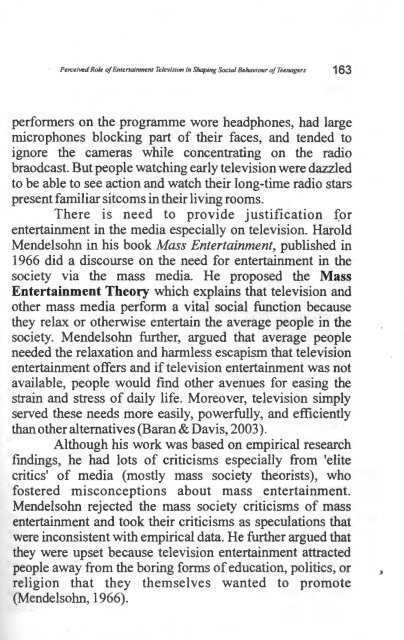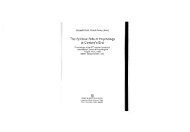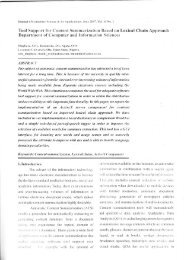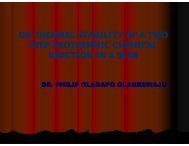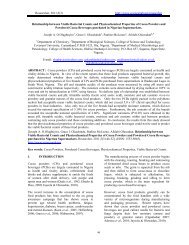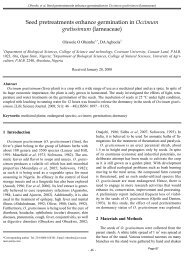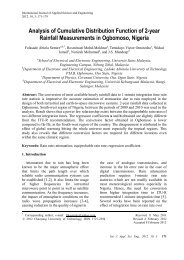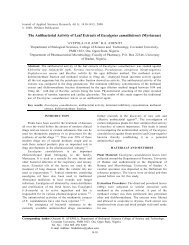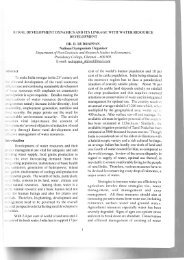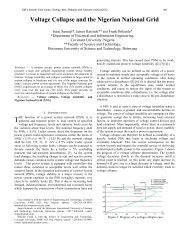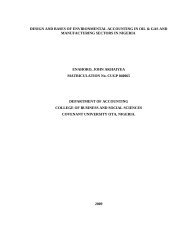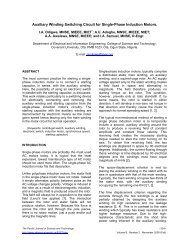Download (5Mb) - Covenant University Repository
Download (5Mb) - Covenant University Repository
Download (5Mb) - Covenant University Repository
Create successful ePaper yourself
Turn your PDF publications into a flip-book with our unique Google optimized e-Paper software.
Perceived Role of Entertainment Television in Shaping Social Behaviour of Teenagers 163<br />
performers on the programme wore headphones, had large<br />
microphones blocking part of their faces, and tended to<br />
ignore the cameras while concentrating on the radio<br />
braodcast. But people watching early television were dazzled<br />
to be able to see action and watch their long-time radio stars<br />
present familiar sitcoms in their living rooms.<br />
There is need to provide justification for<br />
entertainment in the media especially on television. Harold<br />
Mendelsohn in his book Mass Entertainment, published in<br />
1966 did a discourse on the need for entertainment in the<br />
society via the mass media. He proposed the Mass<br />
Entertainment Theory which explains that television and<br />
other mass media perform a vital social function because<br />
they relax or otherwise entertain the average people in the<br />
society. Mendelsohn further, argued that average people<br />
needed the relaxation and harmless escapism that television<br />
entertainment offers and if television entertainment was not<br />
available, people would find other avenues for easing the<br />
strain and stress of daily life. Moreover, television simply<br />
served these needs more easily, powerfully, and efficiently<br />
than other alternatives (Baran & Davis, 2003).<br />
Although his work was based on empirical research<br />
findings, he had lots of criticisms especially from 'elite<br />
critics' of media (mostly mass society theorists), who<br />
fostered misconceptions about mass entertainment.<br />
Mendelsohn rejected the mass society criticisms of mass<br />
entertainment and took their criticisms as speculations that<br />
were inconsistent with empirical data. He further argued that<br />
they were upset because television entertainment attracted<br />
people away from the boring forms of education, politics, or<br />
re ligion that they themselves wanted to promote<br />
(Mendelsohn, 1966).


